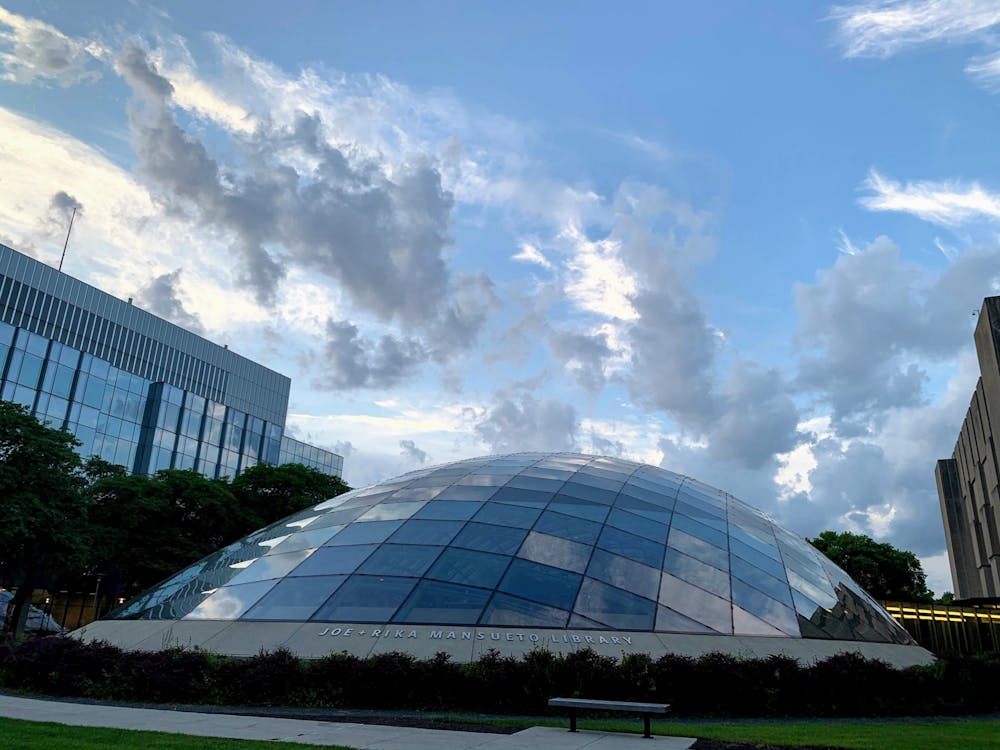“So yeah, I’m excited to live the life of an imposter UChicago student,” I joked to my friends at the end of the summer. I had decided to sublet an apartment a mere five-minute walk away from the University of Chicago (UChicago) campus for the fall and live with a stranger, rather than stay at home in New York, a decision that often warranted some explaining. The short answer is that I wanted to spend time near my older sister, who’s currently living in Chicago.
After Princeton, I think UChicago will always be the college I have the second-strongest ties to — my older sister graduated from the school, and I’ve visited countless times. Even before living near the university this semester, I was familiar with “The Med” (short for Medici on 57th, an iconic bakery, restaurant, and hangout for UChicago students), “The Reg” (short for The Joseph Regenstein Library, the UChicago equivalent of Firestone), and “The Midway” (short for Midway Plaisance, a street and strip of greenery that runs through the southern portion of campus — it was first designed by Frederick Law Olmstead as an exhibition space for the 1893 World’s Columbian Exposition). I was excited to learn to live on my own in a new city and experience what life was like for my sister during her four years here.
So, what’s it like going from the Orange Bubble to the Maroon Bubble (if that’s what they even call it)? For one, seeing all the UChicago students coming back to campus and living their lives as “typical” college students (albeit with masks and restrictions for which bathrooms they can use) has made me miss Princeton much more than I probably would have had I not chosen to live so close to another college campus. I was talking to a UChicago friend the other day about how I missed working in libraries when he started to suggest that I book an appointment to work at Mansueto (UChicago’s 24-hour library that is now open for students to use by appointment). He soon realized that, in the words of Damian from “Mean Girls,” “she doesn’t even go here.”
I miss all of the conveniences of living on a college campus — from having access to amazing study spaces to being able to knock on my neighbor’s door to borrow batteries.
Walking around UChicago’s campus and seeing students sprawled out on the lawn doing homework, or chatting over a cup of coffee on a bench has also instinctively kicked me back into the habit of constantly looking around to say “hi” to friends or acquaintances I recognize. Logically, my brain’s fully aware that the chances that I’ll accidentally cross paths with one of the few friends I know at UChicago and recognize them under a mask are slim. But does that stop me from hoping that a shock of curly hair on a casual passerby is that of a friend’s? No. I miss the density of campus, the casual run-ins and conversations I had while walking to class.
I could go on for ages about how living in Hyde Park makes me miss Princeton, but I’ll save you the grief. I’ve also gained some perspective on things that I wish were different about Princeton. I wish there was more of a culture of living off-campus. Learning to cook for myself regularly, negotiate a lease (or a sublease, in my current case), and pay utility bills are things that I honestly probably wouldn’t have had the chance to experience had the pandemic not happened. But these are things that most UChicago students learn. According to this article in The Chicago Maroon, only 55 percent of undergraduate students lived on campus in the 2016-17 school year. According to Princeton’s website, 98 percent of students live on campus.
The presence of the largely wealthy UChicago students living off-campus is gentrifying the surrounding neighborhood, an effect that shouldn’t be taken lightly, but the same would likely not happen in Princeton, a neighborhood with a median household income of $138,194, more than double that of Hyde Park, at $55,198. Of course, with Princeton’s elevated median income comes higher real estate prices, likely one of the reasons why students don’t live off-campus. But I wish there was more of an opportunity for Princeton life to feel like “real” life, whatever that means, and I think living off-campus helps students break out of the college bubble.
For now, though, I’ll take the joys of the independence I gain from living on my own with the sadness of missing Princeton, and hold dear to my heart the things that are the same when living among so many college students. For one, Thai restaurants in college towns are all weirdly close together. Here in Hyde Park, there are also three on the same street — fun fact, when I called to order takeout from one, they asked if I was sure I meant to call their specific restaurant (and if you’re about to tell me that there are only two Thai restaurants on Nassau Street, think again because Google Maps tells me a third restaurant opened a block away from Thai Village a few months ago). And of course, drifting asleep to the sounds of “Mo Bamba” blasting out of a nearby window on a Saturday night, then stepping over red Solo cups strewn across the sidewalk the next morning, never changes.








